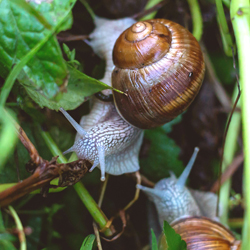Your garden can be your sanctuary, a place for gentle focus, restoration, and connection with yourself and the natural world around you. Despite your best efforts to create a calm oasis in your garden, however, it is easy to get distracted and sidetracked by little annoyances and problems. Removing these peace interrupters doesn’t have to be difficult, and doing so can return your garden to the soothing sanctuary you desire.
What Is a Peace Interrupter?
Anything that causes a distraction in the garden can be considered a peace interrupter. If it raises your stress instead of helping you center and calm yourself, it is a peace interrupter. These distractions can be different for every gardener, depending on the type of garden you have, how you like it maintained, what season it is, and what causes you stress. It is up to you to decide what distractions you want to eliminate from your garden in order to increase its peacefulness and enhance your personal relaxation.
Top 10 Peace Interrupters in the Garden
While everyone may have a different idea of what makes a peaceful garden, these top 10 interrupters are almost universally considered problems. Fortunately, it’s easy to eliminate each one to make your garden a more peaceful place.
- Weeds – Weeds are found in nearly every garden as they take over any bare space and crowd out more desirable plants. Pulling weeds is a common way to remove them, and if you keep up on the task, it doesn’t have to be much of a chore. Adding thicker layers of mulch or using barriers such as weed control fabric are good options for controlling weeds. Ground covers can also keep weeds out of your garden while adding even more beautiful plants to the space.
- Invasive Plants – While they may not always be weeds, invasive plants can have the same effect on a garden as they push out your carefully cultivated plants and take over every space they can reach. Take care when choosing new cultivars to be sure you’re not accidentally introducing invasive plants to your garden. Judicious pruning and trimming plants can help keep them under control, or invasive plants may need to be dug out and completely removed.
- Harmful Insects – There are many beneficial insects that can bring joy to your garden, but harmful insects can damage plants. Aphids, slugs, grubs, Japanese beetles, and other bothersome bugs can be controlled by picking them off, or using other control methods such as pesticide soaps and sprays, or encouraging birds to provide natural pest control.
- Unwelcome Wildlife – Many gardeners welcome wildlife visits and find joy and peace in the company of their animal guests, but unwelcome wildlife such as feral cats, hungry rabbits, burrowing voles, and scavenging raccoons can dig up gardens and destroy the beauty you’ve created. Keep this wildlife out with barriers or opt for plants that are resistant to their attention.
- Sour Smells – Every garden is filled with aromas, from freshly turned dirt to sprinkles of summer rain to the fragrant booms of flowers. Less pleasant odors such as rotting fruit or unhealthy compost, however, can wrinkle noses and make a garden anything but enjoyable. Eliminate bad odors by picking up windfall fruit regularly, turning compost so it can decay properly, and planting lusciously fragrant flowers and herbs to add more pleasing scents to your sanctuary.
- Diseases – Gardeners love to see their plants thrive, but when funguses, rots, and other diseases strike, a garden can be anything but peaceful. Providing good care to plants can minimize the risk of diseases, including choosing healthy plants to bring to your garden, pruning them appropriately, and ensuring they have the proper amounts of water, sunshine, and fertilizer as needed. Be aware of changes in your plants and treat any signs of disease as soon as they appear.
- Noise – Depending on where your garden is located, you may be subject to traffic sounds, a rattling air conditioner, a neighbor’s barking dog, or other intrusive noises. Adding muffling landscaping, such as extra shrubbery around the garden, can help remove noises, or use a fountain, rain chain, or wind chimes to add your own pleasing, peaceful sounds to the garden instead.
- Peeking Eyes – It can be hard to relax when you feel there are always prying eyes watching you in your garden. If your garden is close to a sidewalk or a neighbor’s yard, it may feel nearly impossible to improve your privacy, but adding a green wall, tall ornamental grasses, or extra fencing can give you the seclusion you desire for your sanctuary.
- Standing Water – Water is great for a garden when it nourishes your plants, fills a bird bath, or flows through a fountain, but standing, stagnant water can be a problem. Mosquitos and other annoying insects breed in stagnant water, and water standing on a pathway makes mud and can contribute to root rot of nearby plants. Improving drainage can help remove standing water, and you should check your irrigation system to be sure there are no leaks or seepage.
- Pain – Your garden should bring you joy, but pain can interrupt that peace when your back, knees, fingers, and other joints ache every time you work in the garden. Using ergonomic tools and accessories such as knee pads or kneeling benches can help you work in your garden without hurting. Adding a cozy bench or other seating in a peaceful niche can give you a wonderful place for a rest so you can enjoy your garden more easily.
Gaining Peace From Peace Interrupters
No matter how many peace interrupters you may have in your garden, you can still find peace. Removing these disturbances can be relaxing and rejuvenating as you make good progress toward your goal and see how much healthier your garden is becoming. As you work to remove peace interrupters, take deliberate time to note how your garden is changing and focus on the positive improvements you are making. Before you know it, your garden will truly be your personal sanctuary, offering you a calm oasis to immerse yourself in no matter what else life may bring.



